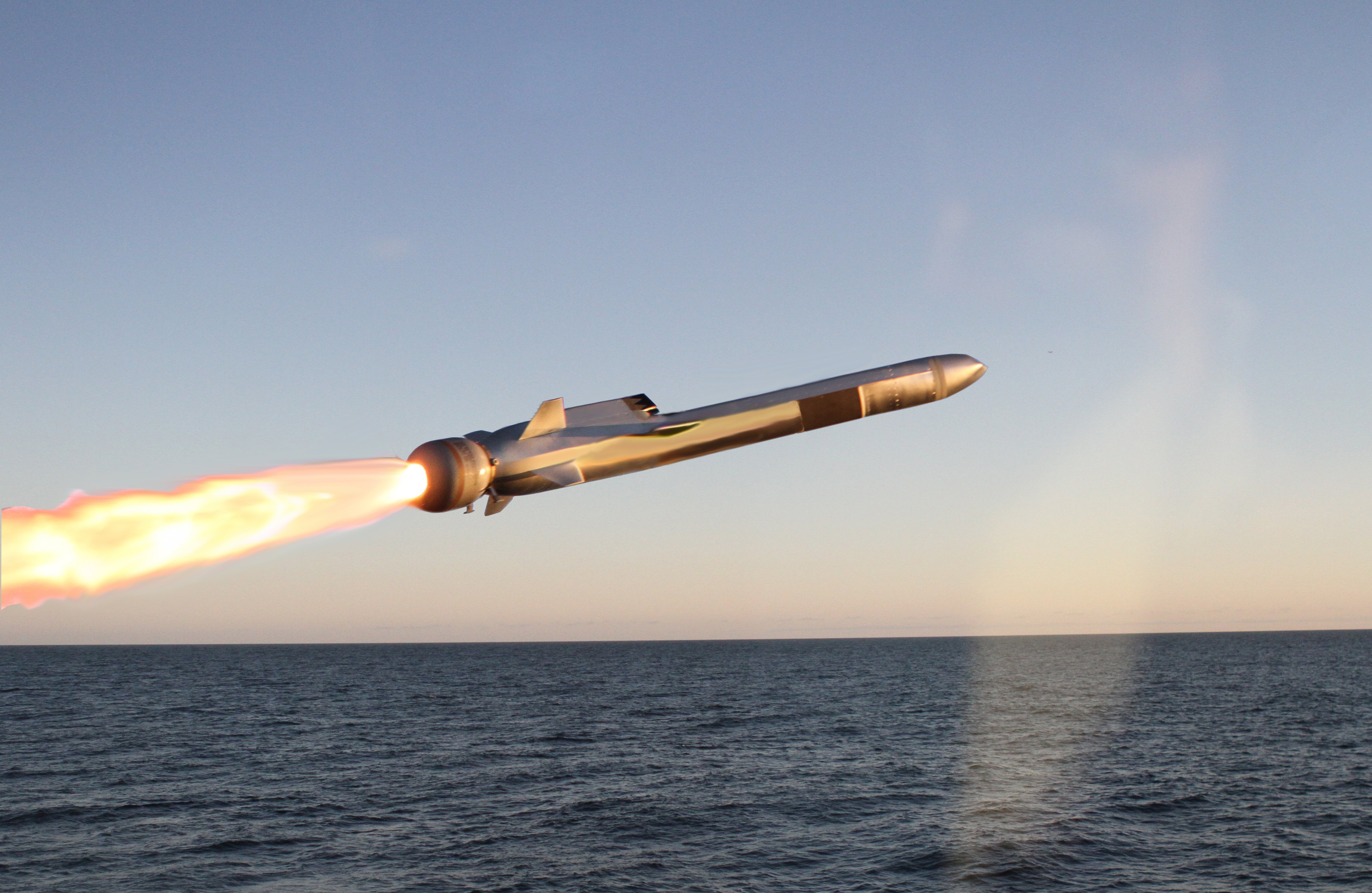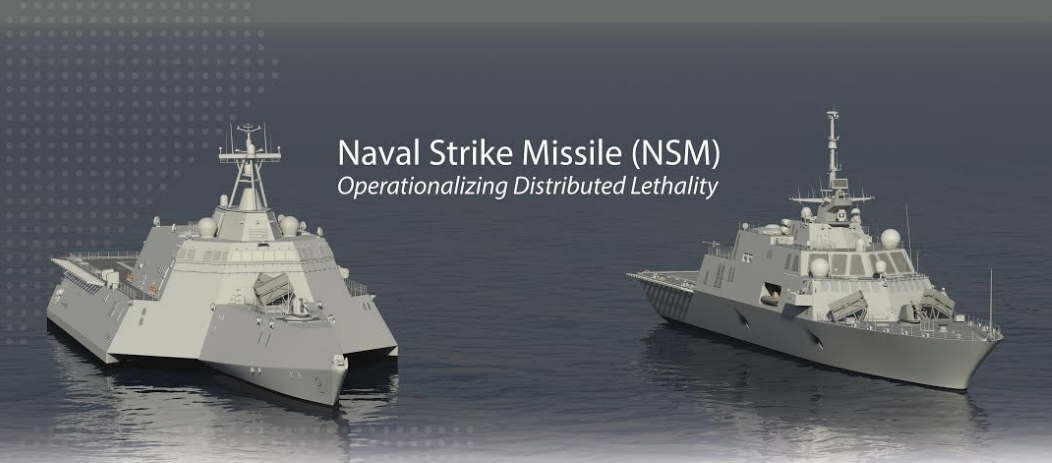
The Norwegian-designed Naval Strike Missile has been officially selected to serve as the Littoral Combat Ship’s over-the-horizon anti-ship weapon, according to a Thursday Pentagon contract announcement.
The $14.8 million contract awarded to Raytheon will purchase the first round of missiles that will be incorporated on to the Freedom and Independence variants of the Littoral Combat Ships as part of Fiscal Year 2018 funds for OTH weapon research and development. The value could grow to $847.6 million if all contract options are exercised.
The award calls for the delivery of the Kongsberg designed, “encanistered missiles loaded into launching mechanisms; and a single fire control suite.” The contract did not specify how many missiles were paid for in the contract, but USNI News understands the Thursday award buys about a dozen missiles.
The subsonic NSM has been in service with the Royal Norwegian Navy since 2012. The weapon has a range of about 100 nautical miles with a cost of slightly less than the Raytheon Tomahawk Block IV cruise missile (the Navy quotes the price per round of the TLAMs at $569,000 per round in FY 1999 dollars (about $868,000 in 2018, adjusted for inflation)).
The companies announced they would pair together to compete for new U.S. anti-ship missile contracts in 2015. In 2016 Raytheon and Kongsberg agreed to assemble and test the Norwegian missile’s components in Raytheon’s Tucson, Ariz. facility and the launchers at Raytheon’s plant in Louisville, Ky.
The award to the Raytheon-Kongsberg team comes as little surprise as the Naval Strike Missile was the only competitor for the OTH contract. The Boeing Harpoon Block II Plus and the Lockheed Martin Long-Range Anti-Ship Missile (LRASM) were both withdrawn by their respective companies from the competition last year. Both Boeing and Lockheed complained that Navy requirements for the OTH missiles did not value the networking capability of their offerings, several sources confirmed to USNI News.
The OTH program for LCS emerged in tandem with the U.S. surface navy’s distributed lethality push in 2015.

The following is the complete May 31, 2018 contract announcement.
Raytheon Co., Missile Systems, Tucson, Arizona, is awarded a $14,856,016 firm-fixed-price contract for Over-the-Horizon Weapon Systems. This contract will manufacture and deliver Over-the-Horizon Weapon Systems, which consists of encanistered missiles (EM) loaded into launching mechanisms (LM); and a single fire control suite (FCS). This contract consists of EMs (tactical, telemetered and inert operational); FCSs; LMs; mission support equipment, training equipment and courses; engineering services; and travel and other direct costs. This contract includes options which, if exercised, would bring the cumulative value of this contract to $847,611,857. Work will be performed in Kongsberg, Norway (75 percent); Tucson, Arizona (15 percent); Schrobenhausen, Germany (4 percent); Raufoss, Norway (3 percent); McKinney, Texas (2 percent); and Louisville, Kentucky (1 percent), and is expected to be completed by May 2020. Fiscal 2018 research, development, test and evaluation (Navy) funding; and fiscal 2018 other procurement (Navy) funding in the amount of $14,856,016 will be obligated at time of award and will not expire at the end of the current fiscal year. This contract was competitively procured via the Federal Business Opportunities website, with one offer received. The Naval Sea Systems Command, Washington, District of Columbia, is the contracting activity (N00024-18-C-5432).





